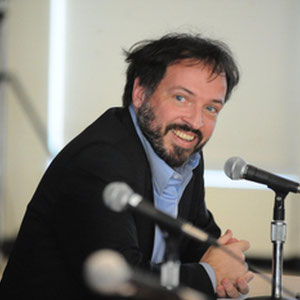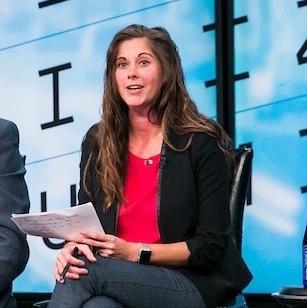Can the DWeb combat Censorship, Prosecution, and Government Interference?

This panel provides an overview of the ways we have seen, are currently seeing, and are likely to see, misguided and/or malicious government interference that restricts the free flow of information online. It will also ask how those governments are likely to deal with the Decentralized Web, and how Decentralized Web developers can build tools that may counter governments that fail to respect their users’ rights. What are the legal frameworks that limit and protect these new technologies?


Danny O'Brien is Senior Fellow and DWeb Strategy at the Filecoin Foundation and the Filecoin Foundation for the Decentralized Web. He has been a tech journalist, developer, and activist for online free speech, privacy, and an open internet for over 20 years, including over a decade at the Electronic Frontier Foundation (EFF).
His work within the technology sector has included being a founding employee at the Virgin brand's ISP, Virgin Net. As a journalist, he served as Silicon Valley correspondent for the London Sunday Times and the Irish Times, and defended reporters globally from online harassment and cyber-attacks at the Committee to Protect Journalists.


Dmitri is the founder and director of eQualit.ie with fifteen years experience working on digital security and privacy technology with civil society organizations. He has led and participated in missions to over 40 countries, and is a recognized expert on technology training and organizational security. He is the author of the Digital Security and Privacy for Human Rights Defenders manual and was a founding member and coordinator of the NGO-in-a-Box Security Edition project. Since 2011, Dmitri has lead the eQualit.ie team and its various projects.


Emma Llansó is the Director of CDT’s Free Expression Project, which works to promote law and policy that support users’ free expression rights in the United States and around the world. Emma leads CDT’s work in advancing speech-protective policies, which include legislative advocacy and amicus activity in the U.S. aimed at ensuring that online expression receives the highest level of protection under the First Amendment. Recognizing the crucial role played by Internet intermediaries in facilitating individuals’ expression, she works to preserve strong intermediary liability protections in the U.S. and to advance these key policies abroad.
Emma also leads the Free Expression Project’s work in developing content policy best practices with Internet content platforms and advocating for user-empowerment tools and other alternatives to government regulation of online speech. The Project’s work spans many subjects, including online child safety and children’s privacy, human trafficking, privacy and online reputation issues, counter-terrorism and “radicalizing” content, and online harassment. Emma is also a member of the Freedom Online Coalition’s Working Group on Privacy and Transparency Online, which is developing best practices for transparency reporting by governments and companies regarding government demands to Internet companies for content removal and access to user data. Emma works with CDT’s Global Internet Policy & Human Rights Project on advancing policies that promote free expression in global fora; she also works with the Global project in advocating for decentralized, multistakeholder approaches to Internet governance.


Mary Kay Magistad is creator & host of the Whose Century Is It? podcast, looking at ideas, trends and twists shaping the 21st century -- the prospect of a decentralized web among them. After more than two decades as a foreign correspondent in China and Southeast Asia for NPR and for PRI/BBC's The World, she now lives in San Francisco, teaches international reporting to undergraduates at UC Berkeley, and has been a fellow at the Institute for the Future in Palo Alto.


Victoria Baranetsky is general counsel at The Center for Investigative Reporting. Before joining CIR, Baranetsky was the first attorney on the West Coast for the Reporters Committee for Freedom of the Press, where she worked on matters involving the intersection of technology and media law, access to government data, privacy and government surveillance. She previously worked as legal counsel at the Wikimedia Foundation on trademark and First Amendment issues, including the foundation’s transfer to HTTPS. Baranetsky also served as the First Amendment fellow at The New York Times, where she worked on various media law matters, including FOIA, prepublication review and libel litigations. Prior to that, Baranetsky clerked for the Honorable Rosemary Pooler of the Second Circuit after graduating from Harvard Law School. She also holds a master’s degree in philosophy from Oxford University and a bachelor’s degree from Columbia University and is a graduate of Columbia Journalism School. Currently, Baranetsky is an affiliate at Harvard's Berkman Klein Center for Internet and Society, a fellow at the Tow Center for Digital Journalism at Columbia University and a member of the Society of Professional Journalists’ Northern California chapter. She is barred in California, New York and New Jersey. Baranetsky is based in CIR's Emeryville, California, office.


Cori Zarek is a Senior Fellow at Mozilla, a nonprofit that promotes a free and open Internet. Before joining Mozilla, Cori was Deputy U.S. Chief Technology Officer at the White House where she led the team's work to build a more digital, open, and collaborative government. Previously, she was an attorney at the U.S. National Archives, and before that, at The Reporters Committee for Freedom of the Press where she worked on First Amendment and freedom of information issues. Before practicing law, Cori reported for the Des Moines Register. She has taught a class on First Amendment law at American University in Washington, D.C. for the past 10 years. Cori serves on the board of directors for MuckRock, a nonprofit, collaborative news site in the U.S. that promotes transparency for an informed democracy; on the Advisory Council for the International Center for Not-for-Profit Law; and as a mentor for the Harmony Labs Accelerator which supports early-stage tech companies that use media to support an open, resilient, democratic society.
